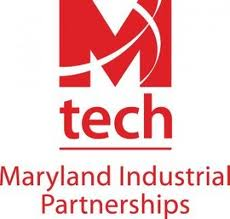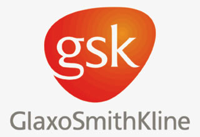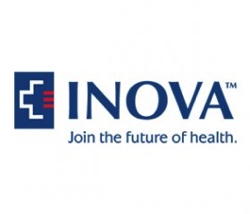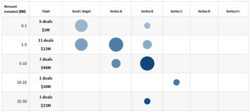|
 Montgomery County Executive Isiah Leggett today announced that investors in 10 local biotech companies will receive $500,000 in return for investing more than $7 million in local companies that qualified for the County’s local biotech tax credit supplement program. “Again in 2013, our biotech sector will benefit from the County’s local biotech tax credit supplement program,” said Leggett. “It is another indication that our biotech companies are thriving and that Montgomery County supports their ongoing growth and success financially, along with targeted programmatic support.” Montgomery County Executive Isiah Leggett today announced that investors in 10 local biotech companies will receive $500,000 in return for investing more than $7 million in local companies that qualified for the County’s local biotech tax credit supplement program. “Again in 2013, our biotech sector will benefit from the County’s local biotech tax credit supplement program,” said Leggett. “It is another indication that our biotech companies are thriving and that Montgomery County supports their ongoing growth and success financially, along with targeted programmatic support.”
back to top 

William G. “Bill” Robertson plans to leave his post as president and chief executive of Gaithersburg-based health system Adventist HealthCare in April to lead MultiCare Health System, a not-for-profit organization based in Washington state.
Robertson has led Adventist — one of the largest private employers in Maryland, with more than 6,200 employees — since 2000. His last day will be April 4, Adventist HealthCare Board of Trustees Chairman David E. Weigley announced Monday.
back to top 

Fifteen university research teams from Maryland will receive a total of $4.1 million to work with local companies to turn their research into products that could one day be sold on the commercial market.
The grants were awarded by the Maryland Industrial Partnerships (MIPS) program to projects that pair researchers at University System of Maryland schools with local businesses. The $4.1 million is a combination of MIPS grants and matching funding provided by participating companies.
back to top 

NexImmune, an immunotherapy company developing products for the treatment of cancer, today announced a new scientific publication by NexImmune co-founder Dr. Jonathan Schneck and colleagues that provides an important advance in the use of its proprietary Artificial Immune (AIMä) Technology for cellular therapy of cancer. The study, published this week in ACS Nano, demonstrated the use of nanoparticle artificial Antigen Presenting Cells (aAPC), a key component of the AIM technology, with applied magnetic fields to activate and expand naive, normally poorly responsive T cell populations. Significantly, activated cells were highly effective for treating cancer in a mouse model system.
Activating naive T cells has been a key, but elusive goal of immunotherapy as these cells are more effective than differentiated T cell subtypes for treating cancer. Once activated, naive T cells have a higher proliferative capacity and a greater ability to generate strong, long-term T cell responses important for immunotherapy. Thus, this study describes a novel approach whereby AIM aAPC can potentially be coupled to magnetic-field-enhanced activation of T cells to increase the yield and activity of antigen-specific T cells expanded from naive precursors, thereby improving cellular therapy for cancer.
back to top 

As cars zoom along Darnestown Road, drivers can glimpse the gently sloping pastures of historic Belward Farm, a wide swath of green in the middle of Montgomery County that has seen little change since the Civil War.¶ Even as tract mansions, shopping centers, roads and office parks have sprouted nearby, Belward has endured, looking today much as it did in the 19th century. Not long ago, Belward Farm was home to an 80-head herd of black Angus cattle, two miniature horses and a donkey, whose owner, Elizabeth Beall Banks, was a feisty opponent of development.
back to top 

GSK is inviting academic scientists to enter their most innovative drug research proposals into its 2014 Discovery Fast Track Challenge– a program designed to accelerate the translation of early-stage research into game-changing new medicines.
Building on the success of its first program in 2013, which ran in the United States and Canada, GSK is implementing the challenge for a second year and expanding it to include Europe. Scientists who participate in the challenge are asked to submit details about the biological targets or pathways they are researching and the scientific rationale detailing how this early stage research could direct future drug development.
back to top 

The University of Maryland (UM) BioPark and UM Ventures announced today that Advanced Metrics, a successful early-stage UM, Baltimore (UMB) startup has moved from offices on the University's campus to the BioPark. Advanced Metrics is leveraging software development and data expertise to provide solutions for the healthcare industry. It has moved quickly into commercialization since establishment only a year ago. Two employees will develop the company's technologies at the BioPark. The company also has additional staff in Mountville, Pennsylvania.
"Moving to the UM BioPark allows us to grow in an innovation-rich environment, where a variety of scientific companies operate," said Steven Herr, Ph.D., CEO of Advanced Metrics. "We aspire to be innovative and agile, and to work in a smart way for healthcare practitioners and families. Moving to the BioPark and surrounding ourselves with innovative peers is an ideal step towards accomplishing our
back to top 

BD Diagnostics, a segment of BD (Becton, Dickinson and Company), a leading global medical technology company, announced today that it received 510(k) clearance and Clinical Laboratory Improvement Amendments (CLIA) Waiver from the U.S. Food and Drug Administration (FDA) for the BD Veritor™ System for Rapid Detection of Group A Strep . This is the first commercially available rapid Group A Strep test system that incorporates a digital result to receive CLIA Waiver. The new assay is cleared for use in hospitals, outpatient clinics and other patient-care settings.
Group A Strep is the most common bacterial cause of pharyngitis. More accurately determining the etiology of pharyngitis can help providers make more appropriate antibiotic treatment decisions.
back to top 

Dennis Truong and Jody Crane have reinvented the traditional house call.
The Kaiser Permanente doctors are responsible for the creation and implementation of a new program called HouseCalls, in which patients can schedule 20-minute appointments with physicians via video. The foray into mobile health saves the patients a visit to urgent care centers and saves those centers money, the doctors said. It’s just one new initiative underway at the national health provider aimed at improving care while lowering costs.
back to top 

D.C. Mayor Vincent Gray's administration plans to establish a new fund to aid tech startups and designate a stretch of Northwest D.C. as a "technology corridor" under its Digital DC initiative, according to an email obtained by the Washington Business Journal.
Digital DC — known until this week as Digital District — is the latest in a series of efforts by Gray to elevate the city's status as a startup hub. It appears to mirror fairly closely some of the recommendations on Gray's five-year economic development roadmap.
back to top 

PricewaterhouseCoopers recently released the breakdown of its MoneyTree report by region. While we've know for about a month now what fourth-quarter venture capital in D.C. looked like, we weren't completely sure what the total region looked like broken down by specific tech verticals and how much each received.
In total, the D.C./Metroplex region slipped a bit from the third quarter when it was ranked fifth in amount of funding. In Q4, however, we fell back to the ninth spot behind Texas and the Southeast. Yikes. That may have to do with an absence of huge deals that we saw earlier in 2013, such as Clarabridge's $80 million raise and Evolent Health's $100 million raise.
back to top 

The excitement reached a new peak with the first successful mapping of a human genome at the turn of the millennium.
What if doctors could predict, based on your genetic makeup, which diseases you had a predisposition to so you could prevent them before you ever developed a single symptom? If you did get sick, what if they could tailor a specific drug that your DNA would best respond to?
back to top 

Dramatic change in angel investing means both threats and opportunities for the angel investment community and the tens of thousands of entrepreneurs they support, according to the Angel Capital Association (ACA), the world's leading professional association for angel investors. The global angel investing community will debate and assess this new environment at the 2014 ACA Summit, "Angel Impact: Entrepreneurial and Economic Success," March 26-28, 2014, in Washington, D.C.
U.S. angel investors – individuals who support startup companies with passion, experience and funding - in 2012 invested nearly $23 billion in about 67,000 ventures, according to estimates by the Center for Venture Research at the University of New Hampshire. Their impact on the economy is huge, as the kinds of innovative startups angels invest in create all of the net new jobs in the country, according to reports by the Census Bureau and Kauffman Foundation.
back to top 

Accelerator programs and incubators are growing rapidly in number within the health care industry, with most replicating standard tech incubator models. But one organization has worked to redefine what an accelerator program can look like in the health space by joining one of the country’s largest and most influential associations in its landmark effort to court healthcare innovation. Dr. Ross Tonkens, a cardiologist and Chief Medical Officer in Cary, North Carolina has directed the creation of the Science and Technology Accelerator Program inside the American Heart Association (AHA), that targets and supports ground-breaking ideas from residents to senior clinicians.
back to top 

It pays to have a college diploma -- and preferably more than one.
A worker who holds a bachelor's degree will typically earn 77 percent more than a colleague who didn't go beyond high school, says a new U.S. Census Bureau report. And a person with a master's degree will earn 17 percent more than an individual with a B.A. or B.S.
back to top 

If the rounds that Health Catalyst and Zephyr Health have put together are any indication of how the rest of the year might go for fledgling healthcare data analytics startups, we can expect to see bigger, mid-stage deals this year, and not in the places you might expect.
New analysis from research firm CB Insights found that venture funding for companies developing predictive and prescriptive data analytics for healthcare more than doubled from 2012 to 2013, while deal volume rose 40 percent. These are companies that are working with providers or payers to convert all of the data they’re collecting into insights that will hopefully guide more effective and less costly care.
back to top 

The recent federal mandates for healthcare information technology have increased demand on the field, boosting the need for educated and knowledgeable staff for health IT projects. But with the emergence and recent popularity of graduate education in healthcare informatics, we are seeing an influx of students entering these programs who do not have clinical or information technology backgrounds.
These individuals have a great desire to work in informatics and recognize the enormous impact the field can have on healthcare, but they lack the hands-on experience that many employers seek. Some of these students have even reported challenges getting hired after obtaining their master’s degree, for lack of ‘experience.’
back to top 

Dr. Lucian Iancovici is an investment manager at Qualcomm Ventures with a focus on the Qualcomm Life Fund, a $100 million digital health fund. He manages the fund’s investments in Fitbit and PracticeFusion. This week at HIMSS, Iancovici was a keynote speaker at a venture forum to explore investment trends in healthcare and the different approaches digital health startups are taking to take on pain points in the industry.
In an interview with MedCity News, Iancovici identified a few emerging patterns he sees in digital health centered around mobilizing, organizing and analyzing patient data to catalyze changes in healthcare.
back to top 

The U.S. experiences cycles in liquidity because, well, we just aren’t that creative. In 2006 to 2007 we saw waves of consumer tech IPOs, then the inevitable ebb, followed by the flow of enterprise tech IPOs from 2010 to 2013. But while high profile brands like Twitter and FireEye dominated the news, did you know that 38 healthcare firms went public, compared to 28 in technology? In 2013 we saw healthcare IT investments break records, exceeding $1.9 billion in total investments. And digital health has only scratched the surface: I believe that healthcare IT IPOs will quadruple enterprise tech IPOs this year.
The healthcare IT market is ripe for IPOs for several reasons.
back to top 

Twenty-somethings can be a tough crowd to please. They’re glued to their smartphones, opinionated, and entirely dependent on technology. When facing an illness, they’ll jump head-first into the information-abyss of a Google search. By the time they make it to the doctor’s office, they’ve already digested 15 academic studies and 10 online articles.
As the Pew Center points out, this hyper-connected behavior is a double edged sword — on the one hand, millennial patients have the resources to be their most empowered and informed. The problem? These young information-seekers risk falling prey to poorly researched online articles, bad advice on social media, and the impulse to self-medicate to avoid expensive ER visits. Not to mention, some members of this demographic are deluded enough to think that they’re ‘too healthy for healthcare.’
back to top 

Long ignored in favor of enterprise software, social networking and other sexy Internet technologies, biotech has roared back in the past year.
With drug companies desperate to replace expiring drug patents, and President Barack Obama's new health care law demanding cuts in medical costs, Wall Street has shown a seemingly insatiable appetite for initial public offerings of stock. Last year's 35 IPOs, including seven in the Bay Area, represented the most in the sector in nearly a decade. In the first two months of this year, 17 others have launched -- shattering records.
back to top 
|